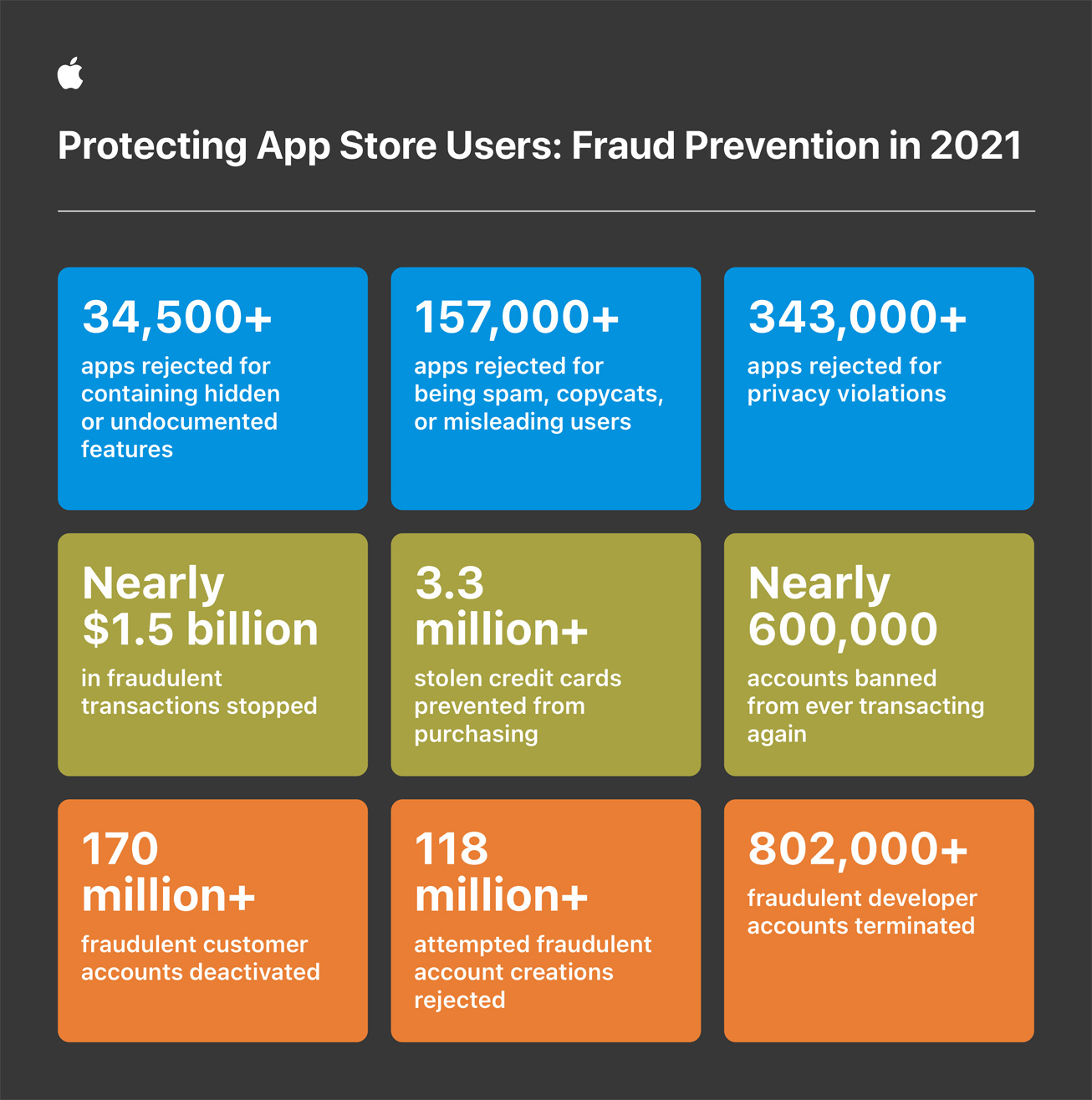Just ahead of the kickoff of WWDC 2022 next week — during which Apple will debut the latest versions of the operating software for iPhones, iPads, Macs, Apple Watch, and Apple TV — the iPhone maker has also published some revealing stats about its App Store security efforts.
Apple is likely going to summarize some of these findings during the WWDC keynote event on Monday, June 6. In short, Apple said on Wednesday that its security efforts in 2021 protected customers from almost $1.5 billion in “potentially fraudulent” transactions. Also, Apple stopped more than 1.6 million “risky and vulnerable” apps from defrauding users.
To be sure, there’s always a bit of finesse involved in quantifying the damage that could have resulted from something that didn’t actually take place. The infographic below, however, provides a bit of insight into how Apple reached those conclusions. Last year, for example, the company says it blocked more than 3.3 million stolen credit cards from App Store purchases. That stat also helps partly explain where the “$1.5 billion in fraudulent transactions” figure comes from.
App Store security, by the numbers
From Apple’s news release on Wednesday: “Apple’s efforts to prevent and reduce fraud on the App Store require continuous monitoring and vigilance across multiple teams. From App Review to Discovery Fraud, Apple’s ongoing commitment to protect users from fraudulent app activity demonstrates once again why independent, respected security experts have said the App Store is the safest place to find and download apps.”

In 2021, Apple goes on to explain, its App Review process helped more than 107,000 new developers get their apps onto the App Store. Even though that process is not as straightforward as it might sound.
Sometimes, pending apps might be a little unfinished, for example. Or contain bugs that hamper their functionality when the app is first submitted for approval. Apple might also require more robust content moderation mechanisms in place for any user-generated content.
“In 2021, over 835,000 problematic new apps, and an additional 805,000 app updates, were rejected or removed for a range of reasons like those,” Apple says. As part of the App Review process, Apple also stresses that such decisions aren’t necessarily final. Any developer “who feels they have been incorrectly flagged” for fraud can appeal to Apple’s App Review Board.
Apple releases fraud analysis ahead of WWDC
Apple also notes that it rejected some apps from the App Store for “flagrant violations” of Apple’s guidelines. The iPhone maker says the violations were of a sort that could have either harmed or degraded the overall user experience.
In 2021, Apple adds that its App Review team rejected more than 34,500 apps from its applications marketplace. The reason? For “containing hidden or undocumented” features. Also, more than 157,000 apps were rejected from the App Store for other reasons. Like, for example, Apple having determined that those apps were “spam, copycats, or misleading to users, such as manipulating them into making a purchase.”
As noted above, Apple is likely to touch on some of these findings early in the WWDC 2022 keynote presentation. It will likely be part of the broader state-of-the-company remarks, before Apple execs dive into the specific OS announcements.
iOS 15 news: For more coverage on iPhone updates, visit our iOS 15 guide.








